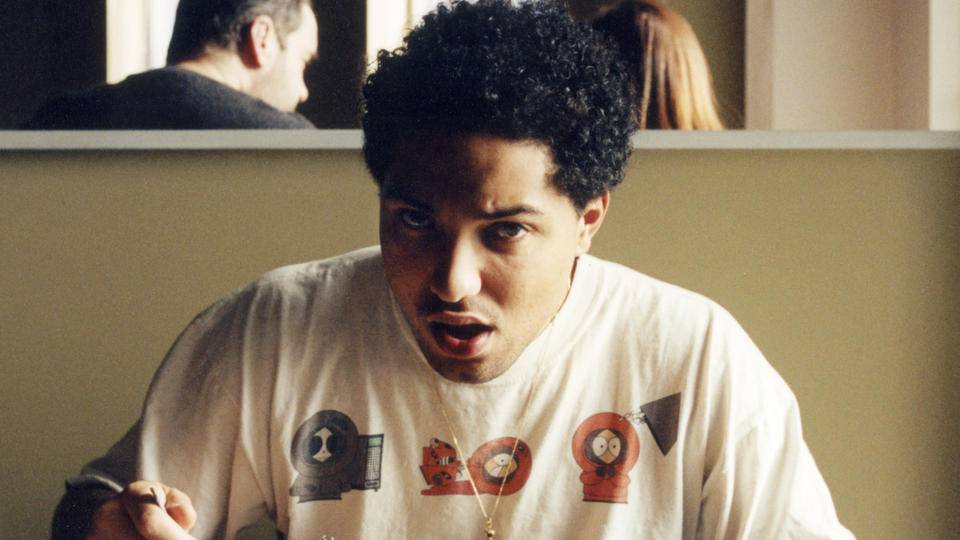14 Things You Need To Know About Bipolar Disorder

When you think of bipolar disorder you might think of scary and unpredictable mood swings - but people are only scared of what they don’t understand.
HENCE why (especially since it’s World Mental Health Day) we’re going to give you the low-down on bipolar disorder - the causes, symptoms, treatments PLUS interesting facts that may surprise you. Here are 14 things you need to know.
1. It’s more complicated than you think
Yes, people with bipolar fluctuate between depressive and manic states - the depressive state is where you feel very low, and the manic state is where you feel elated, excited and full of energy.
BUT it’s not as simple as that. Bipolar can be diagnosed as bipolar I or bipolar II (bipolar II is more extreme), cyclothymia (more mania and less severe depression), rapid cycling (4 or more episodes within 12 months) or ‘mixed’ state (where mania and depression happens simultaneously).
2.It’s not over quickly
The difference between having bipolar and having mood swings is that a) bipolar moods are more extreme and b) they last longer.
People with bipolar can be in a state of depression or mania for weeks at a time, maybe even more.
3. Manic phases can be similar to psychosis
These manic phases are not just high energy, happy times.
Although people may feel manic phases are positive in that they feel very ambitious and creative, they often don’t feel like sleeping or eating and can be prone to hallucinations and delusions, which are symptoms of psychosis.
4. It may not be obvious at first
The way people are often diagnosed with bipolar is that they get diagnosed with depression as the manic state can sometimes only develop years afterwards.
5. It’s not the same for everyone
Some people with bipolar may only have a few episodes in their lives and feel relatively stable in between, while others may have lots of episodes. Some people with bipolar rarely feel in a “normal”, non-extreme mood.
It varies.
6. It probably affects more people than you think
About 1 in 100 people will be diagnosed with bipolar at some stage in their life. And as many as 5% of us are on the spectrum.
7. It can be diagnosed at any age
There is no age limit to developing bipolar though it does most commonly develop between the ages of 15-19 years old.
8. People are often misdiagnosed
Bipolar can develop alongside other conditions like ADHD (attention-deficit hyperactivity disorder), asperger’s syndrome, autism and dyslexia. Children are often misdiagnosed as only having ADHD because they are hyperactive, impulsive and have a low attention span, when actually they may also have bipolar.
Because a lot of people don’t know enough about bipolar, symptoms are often missed during initial diagnoses.
9. It’s genderless
It’s equally likely that a man will be diagnosed with bipolar as a woman.
10. It’s caused by lots of things
There’s no single cause of bipolar.
There are quite a few factors that can contribute to triggering it though like extreme stress, overwhelming problems, life changing events, genetics and chemical disruptions in the brain. Bipolar is thought to be caused by a combination of both biological and psychological factors.
11. Bipolar can affect your driving
Driving if you have bipolar can be dangerous. People with bipolar disorder are required to tell the Driver and Vehicle Licensing Agency (DVLA) that they have it as it may affect their driving.
12. It can get worse during pregnancy
As if being pregnant wasn’t exhausting enough, pregnant women with bipolar may develop more severe symptoms (though this isn’t just limited to bipolar but happens with all mental health problems). There are specialists that can help with this though!
13. 25-50% of people with bipolar attempt suicide at least once
That’s a scary figure, but depression is extremely powerful and can make you feel worthless and hopeless. For that reason, people with bipolar are likely to turn to drink and drugs or self-harm to try to escape their pain.
Drink and drug misuse is a huge problem, but it usually stops when people have found effective treatment and feel a lot more stable. Giving up drink and drugs is a huge positive step towards recovery.
14. There’s no cure
Bipolar is usually a long-term condition and there’s no 100% effective cure. HOWEVER, there are treatments that can effectively reduce the impact of bipolar on peoples’ lives.
There’s medication available - both for helping with the individual symptoms of depression and mania and for generally stabilising peoples’ moods. Lifestyle changes (like eating more healthily and doing exercise) and having psychological treatment are also said to have a huge impact.
Once people with bipolar work out what triggers them and recognise the signs they can combine different treatment methods to find what works for them individually, making living with bipolar a whole lot more manageable.
Bipolar is a severe mental health condition, but that doesn’t mean to say that people can’t live long and happy lives with it. Alongside possibly going on medication the key is monitoring your moods, managing your lifestyle, and making sure you have plenty of outlets to talk through your problems.
'If you think you may have the symptoms of bipolar disorder or want to know more, check out Mind for more information. For more information about Mental Health Day, check out the Mental Health Foundation site.'





